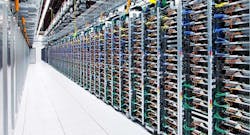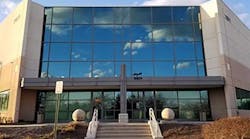Google has purchased two prime land parcels in Loudoun County, Virginia and plans to build data centers at the sites, the company confirmed today. The move signals that Google is ready to step up its cloud capacity in the world’s largest data center markets, where rival Amazon Web Services is rapidly expanding its footprint.
The decision to build data centers in Northern Virginia marks a shift in strategy for Google, which has previously leased wholesale data center space in the region. It also means a continued cloud computing boom for Northern Virginia, which has seen a burst of data center leasing and land deals, as data center developers lay the groundwork for the next phase of cloud growth.
Google confirmed that it has bought a 91-acre property in Arcola, just west of Dulles Airport, for $58 million. Google plans to begin building a data center at the site next year. Google also paid $31 million to acquire a 57-acre property within the Stonewall Business Park near Leesburg, just west of “Data Center Alley” in Ashburn, the region’s largest data center hub. Google didn’t outline development plans yet for the Leesburg site.
Both land purchases were first reported by the Loudoun Times-Mirror.
“We’ve purchased property in Northern Virginia to increase our capacity and meet the growing demand for Google’s services in the area,” Google Public Affairs Manager Liz Schwab, said in a statement to the Times-Mirror. “Loudoun County has been a great partner and we look forward to becoming a part of the community.”
The development sites give Google the ability to dramatically expand its data center infrastructure around Northern Virginia. The company was an early player in the region’s data center growth in 2004, when it leased space in a facility in Reston. It also has a significant presence in at least one wholesale data center in Ashburn, which houses the company’s first Google Cloud Platform region in Northern Virginia, which opened for business in May.
Cloud Growth Continues Apace
The new sites are part of an ongoing expansion of Google’s cloud operation. Last year the company announced plans to add 12 new compute regions for Google Cloud Platform.
The rapid growth of cloud computing has spurred a building boom for the major Internet platforms, as Google, Microsoft, Amazon and Facebook are all super-sizing their cloud campuses to add data center capacity. Meanwhile, developers of third-party data center space are also scaling up their operations so they can lease space to cloud builders.
Cloud campuses are the sites where technology titans concentrate massive amounts of computing power in multiple data center facilities. These huge campuses are where the cloud lives – the physical manifestation of the Internet, often located in rural areas offering cheap land and power. Data center hubs enable companies to rapidly add server capacity and electric power, creating economies of scale as more workloads migrate into these massive server farms.
As cloud computing gains momentum – driven by social networks, Big Data and the Internet of Things – the scale of these facilities will grow ever larger.
That desire for scale is reflected in Google’s recent cloud projects. The company recently bought more than 1,200 acres of land near Reno for a future server farm, and has announced plans for cloud campuses in Alabama and Tennessee. Google has existing data center campuses in North Carolina, South Carolina, Oregon, Iowa and Oklahoma.
Boom Continues for Loudoun County
Northern Virginia has seen new players entering the market in recent months, along with construction and expansion announcements from existing players. As data center providers scramble to procure expansion space, land values have soared past $1.2 million an acre in recent deals in Ashburn, the region’s largest Internet traffic intersection.
“It’s a major investment by Google, and a re-affirmation of the importance of this market in the cloud wars,” said Buddy Rizer, Executive Director for Economic Development in Loudoun County. “By and large, this battle is being fought here. We continue to see more demand, and I think this will be our biggest year ever in terms of data center investment.”
The two new Google sites are just outside Data Center Alley, but close enough for traffic to reach key Internet intersections in a fraction of a second. Google says its site selection team considers a large number of variables, including geographic diversification is a big one. For risk management reasons, Google likes to maintain a certain distance between its data centers, so a single regional disaster won’t impact more than one facility.
Rizer said Google hasn’t given a start date for construction at its Leesburg site, but Rizer said the property is already zoned for data centers and Google can proceed when it’s ready. Google has built data centers as tall as four stories in other markets, but hasn’t yet indicated its design plans for its Northern Virginia properties.
Loudoun County has historically seen one-story or two-story data center builds, but QTS Data Centers has recently begun work on a three-story facility in Ashburn. Rizer said Loudoun officials hope to get the most mileage out of data center construction in the county.
“We’re discussing moving towards incentivizing multi-story data center development, particularly in the core (of Data Center Alley),” Rizer said.






